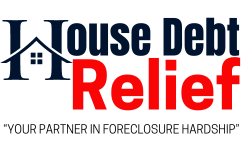By Freddie Avila
Facing foreclosure can be an overwhelming experience, but it’s important for homeowners to know that there are additional ways to address this situation. Alongside foreclosure prevention programs, several alternative options can help homeowners navigate financial difficulties. In this article, we will discuss some of these strategies and explore why they can be helpful in dealing with foreclosure.
Loan Restructuring:
Loan restructuring involves modifying the terms of the mortgage to make it more manageable for homeowners. This could include adjusting the interest rate, extending the loan term, or reducing monthly payments. Restructuring can provide immediate relief by making the mortgage more affordable and allowing homeowners to stay in their homes.
Short Sales:
In a short sale, homeowners sell their property for less than the outstanding mortgage balance with the approval of the lender. This option can benefit homeowners who are unable to meet their mortgage obligations and want to avoid foreclosure. It allows them to sell the property and settle their debt, albeit at a loss. Short sales can be helpful in minimizing the negative impact on credit scores compared to foreclosure.
Short Pay:
Similar to a short sale, short pay involves negotiating with the lender to accept a reduced payoff amount to satisfy the mortgage. This option is suitable for homeowners who owe more on their mortgage than the current market value of their property. By reaching an agreement with the lender, homeowners can sell their property, repay the mortgage, and avoid foreclosure.
Reverse Mortgages:
Reverse mortgages are designed for homeowners aged 62 and older. This option allows homeowners to convert a portion of their home equity into cash, which can help alleviate financial burdens. Reverse mortgages can provide a source of income to cover mortgage payments or other expenses, potentially preventing foreclosure.
Wrap-around Mortgages:
A wrap-around mortgage involves obtaining a new mortgage that incorporates the existing mortgage. This arrangement allows homeowners to make a single monthly payment to the new lender, who then pays the original mortgage. Wrap-around mortgages can be helpful when homeowners are struggling to meet their current mortgage obligations, as they provide an opportunity to negotiate more favorable terms.
Subject-to Transactions:
In a subject-to transaction, the buyer takes ownership of the property “subject to” the existing mortgage. The buyer assumes responsibility for the mortgage payments, allowing the homeowner to transfer ownership without going through foreclosure. Subject-to transactions can provide relief for homeowners who are unable to continue making mortgage payments.
Seller Financing:
Seller financing involves the homeowner acting as the lender for the buyer, providing financing for the purchase of the property. This option can be beneficial for homeowners facing foreclosure, as it allows them to sell the property and receive regular payments from the buyer, potentially avoiding foreclosure while generating income.
Accessory Dwelling Units (ADUs):
Building an ADU on the property can provide homeowners with an additional source of income. Renting out the ADU can help generate funds to cover mortgage payments and prevent foreclosure. ADUs have become increasingly popular as a way to address financial difficulties and maximize property value [6].
Cash Purchase for Your Home:
In some cases, homeowners may consider selling their property to a cash buyer. This option provides a quick sale and immediate cash, allowing homeowners to settle their outstanding mortgage and avoid foreclosure. Selling to a cash buyer can provide financial relief and a fresh start for homeowners facing foreclosure.
Conclusion:
When faced with the prospect of foreclosure, homeowners have various additional options to explore. Loan restructuring, short sales, short pay, reverse mortgages, wrap-around mortgages, subject-to transactions, seller financing, ADUs, and cash purchases all offer different advantages for homeowners in different financial situations. These strategies can help homeowners alleviate their financial burdens, avoid foreclosure, and provide a pathway to a more stable financial future. It is essential for homeowners to consider these alternatives and seek professional advice to determine the best course of action based on their specific circumstances.
General Advice and Support for Homeowners Facing Foreclosure
At House Debt Relief, we provide general advice and support for homeowners facing foreclosure, tailored to your unique financial situation. Our primary goal is to offer guidance that aligns with your best interests.
We recommend exploring assistance through non-profit, city, and state resources first. If these resources cannot provide the help you need, please reach out to us for further assistance or to request our advice at any time.
House Debt Relief is here to support you.
General Advice and Support for Homeowners Facing Foreclosure
At House Debt Relief, we provide general advice and support for homeowners facing foreclosure, tailored to your unique financial situation. Our primary goal is to offer guidance that aligns with your best interests.
We recommend exploring assistance through non-profit, city, and state resources first. If these resources cannot provide the help you need, please reach out to us for further assistance or to request our advice at any time.
House Debt Relief is here to support you.











